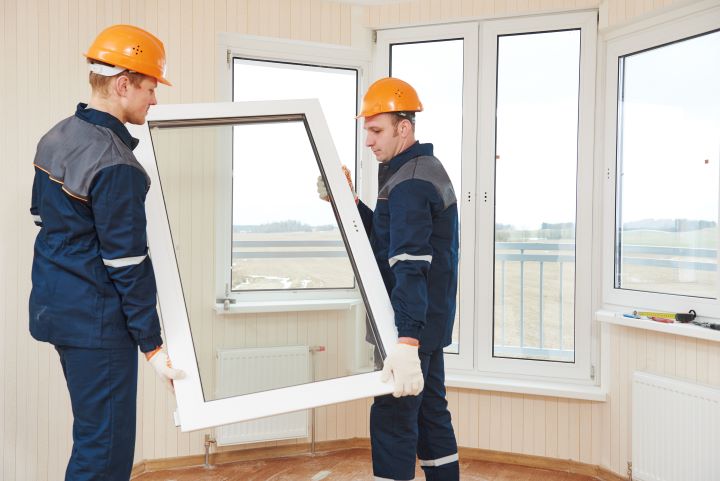Best Garage Floor Coatings 2025 USA: Costs and Insights on Epoxy, Polyurethane, and Polyaspartic
Choosing the right garage floor coating can protect concrete for years and improve appearance. This article explains the key features, expected lifespan, and typical 2025 U.S. costs for epoxy, polyurethane, and polyaspartic coatings for your home to help you pick the best option.

Overview of Garage Floor Coating Choices in the USA
Garage floor coatings provide both protective and decorative layers atop concrete surfaces. They shield floors from stains, chemical spills, wear and tear, and impacts typical in garages, turning an ordinary slab into a stylish, easy-to-clean area. The three primary coating types used across the United States are epoxy, polyurethane, and polyaspartic, each offering unique benefits.
- Epoxy Coatings: As the most widely used, epoxy boasts strong durability, a glossy finish, and customizable appearances, including decorative flakes or metallic pigments.
- Polyurethane Coatings: Valued for outstanding chemical resistance and UV stability, these coatings are ideal for garages exposed to sun or frequent chemical contact.
- Polyaspartic Coatings: A subtype of polyurea, polyaspartic coatings cure rapidly and deliver excellent durability and adhesion, making them perfect for fast installations and challenging environments.
Durability Comparisons of Epoxy, Polyurethane, and Polyaspartic
Durability is a critical factor when choosing a garage floor coating, given the heavy usage garages typically endure.
- Epoxy: High-grade epoxy coatings can last as long as 20 years with proper upkeep. They withstand heavy vehicle traffic, moderate chemical spills, and impacts. On the downside, epoxy may yellow with prolonged sun exposure and could crack under severe temperature fluctuations.
- Polyurethane: With exceptional abrasion resistance and flexibility, polyurethane coatings reduce chipping and peeling. They excel in UV resistance and withstand chemical exposure, making them suitable for sunlit or chemical-prone garages.
- Polyaspartic: This coating type combines remarkable durability with temperature and UV light resistance. Polyaspartic coatings retain their high-gloss look without yellowing and endure heavy wear and chemical spills. Their fast curing also minimizes downtime.
Installation Speed and Curing Times
Installation and curing periods vary notably across these coatings:
- Epoxy: Installation usually requires 2 days, followed by up to 7 days of curing before the floor is ready for regular use.
- Polyurethane: Offers quicker curing, often permitting foot traffic within 1 to 2 days.
- Polyaspartic: The fastest to cure, typically ready for use in 1 day, ideal for projects needing rapid turnaround.
Chemical Resistance and UV Stability Comparison
- Epoxy: Effectively resists mild chemicals and oils but tends to yellow with UV exposure, limiting use in garages with significant sunlight or outdoor settings.
- Polyurethane: Provides excellent UV stability and chemical resistance, suitable for garages with windows or outdoor exposure.
- Polyaspartic: Combines the best chemical resilience and UV stability, maintaining both protection and appearance under all lighting conditions.
Visual Appeal, Customization, and Upkeep
A garage floor coating can significantly uplift the visual appeal of the space.
- Epoxy: Known for its high-gloss finish and extensive customization options including colored flakes, patterns, and metallic effects for a distinctive look.
- Polyurethane: Offers a smooth, durable finish focused more on resilience than decorative options.
- Polyaspartic: Delivers a durable, glossy finish but with fewer customization possibilities compared to epoxy.
Maintenance involves routine cleaning and avoiding aggressive chemical cleaners. Epoxy floors require moderate care, with lifespan influenced by whether water-based or solid epoxy is used. Polyurethane and polyaspartic coatings generally demand less maintenance and can last from 10 up to 20+ years when properly maintained.
Cost Insights Across the USA in 2025
Costs fluctuate depending on location, installer, and project specifics, but general price ranges provide a helpful framework.
- Epoxy Coatings: Professional installation ranges from around $3 to $12 per square foot. For a typical two-car garage (~400-500 sq ft), costs usually fall between $1,200 and $6,000. DIY kits are cheaper but generally offer less durability than professional applications.
- Polyurethane Coatings: Typically priced between $5 and $10 per square foot installed, totaling approximately $2,000 to $5,800 for average two-car garages, reflecting a moderate balance of durability and chemical resistance.
- Polyaspartic Coatings: Usually cost between $5 and $12 per square foot professionally, resulting in about $2,000 to $6,900 for similar-sized garages. The higher cost is balanced by faster curing and enhanced durability.
Additional cost factors include floor size, existing concrete condition, any needed repairs or surface prep, and installation complexity.
Hiring a Professional Garage Floor Coating Installer
For achieving the best results and ensuring longevity, selecting a competent contractor is essential. Consider these points:
- Gather estimates from multiple reputable firms that hold valid licenses and insurance.
- Confirm what surface preparation is included, such as moisture testing and concrete repair.
- Carefully review warranties and contractual terms prior to starting work.
- Avoid paying large sums upfront; link payments to project milestones.
- Inquire about maintenance needs and expected lifespan associated with chosen coatings.
Final Thoughts: Choosing the Right Coating Based on Your Needs and Budget
Your decision should balance durability, cost, aesthetics, and installation speed:
- Select epoxy coatings for an affordable, durable, and visually customizable solution suitable for indoor garages without heavy sunlight.
- Opt for polyurethane coatings if UV protection and chemical resistance are important, with moderate costs and cure times.
- Choose polyaspartic coatings when needing maximum durability, rapid curing, and UV resistance—especially where downtime must be minimized and budget allows.
Knowing the advantages and limitations of each coating and consulting experts can help you upgrade your garage flooring effectively while adding home value and enjoyment.
Disclaimer: Pricing and availability for garage floor coatings vary by region, dealer, and current market factors. Readers should verify details with local professionals before making decisions. Information reflects data available as of 2025.
Sources
-
HomeGuide: Garage Floor Coating Costs and Types https://homeguide.com/costs/garage-floor-coating-cost
-
CustomCrete: Epoxy vs. Polyaspartic Topcoated Floors https://customcrete.net/blog/epoxy-vs.-polyaspartic
-
Wide Voices: The Ultimate Guide to Garage Floor Coatings https://widevoices.com/en/articles/the-ultimate-guide-to-garage-floor-coatings-options-durability-and-costs




